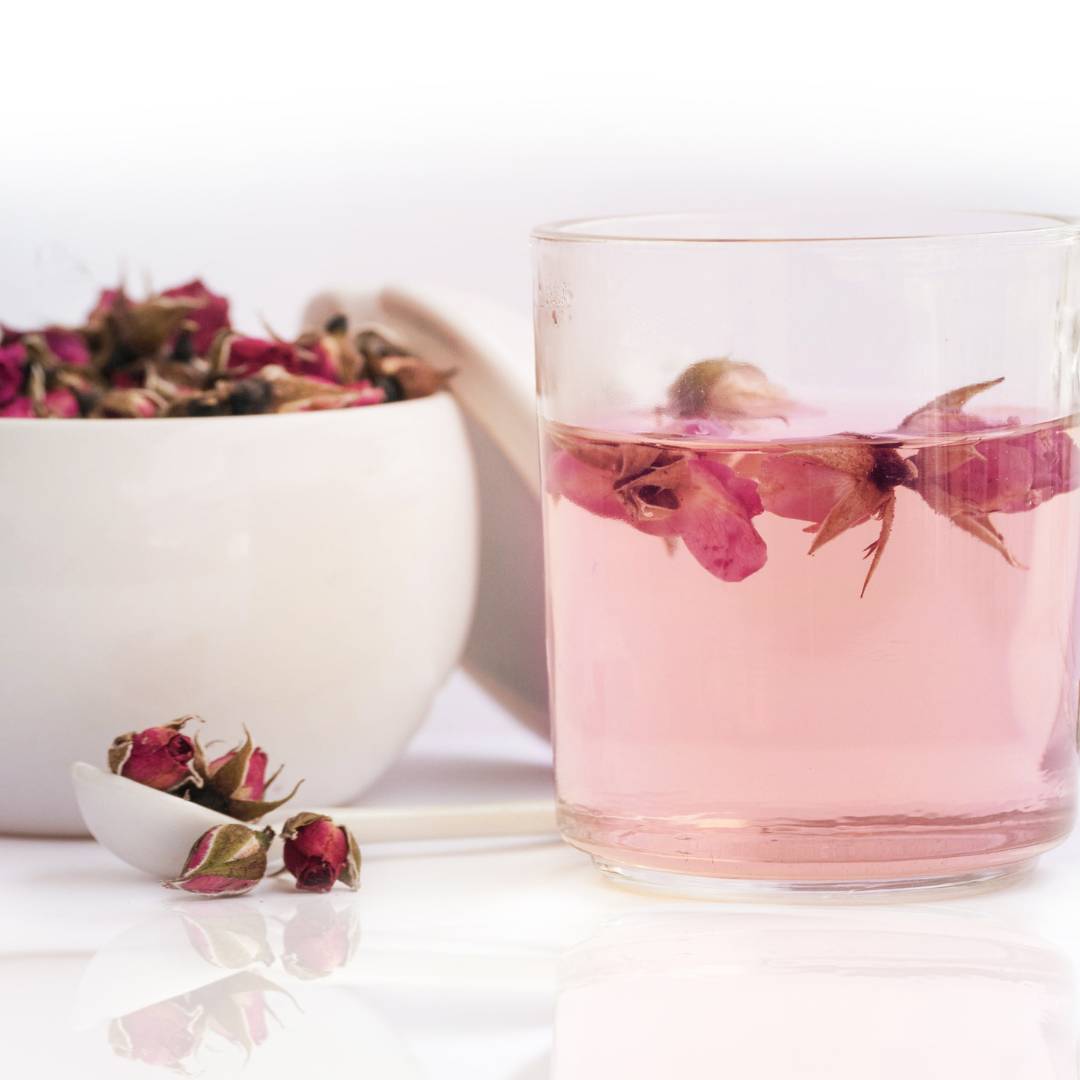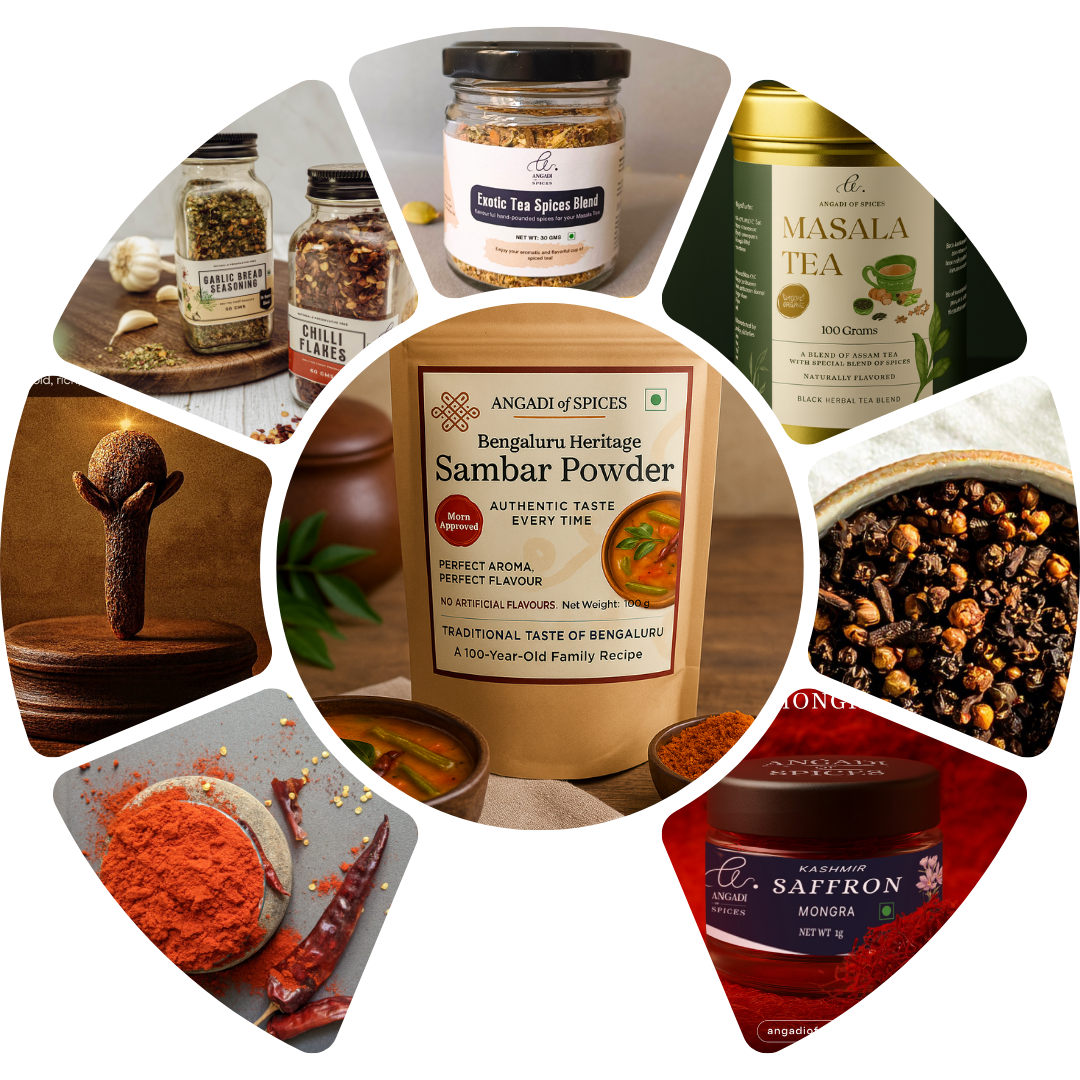Rose Tea Benefits, Flavour, and Brewing Guide: Everything You Need to Know
Introduction to Rose Petal Tea
Rose petal tea, a delicate and aromatic infusion, is made from the dried petals of the rose flower. Cherished for its light, floral flavour and soothing properties, rose petal tea has been enjoyed for centuries across various cultures. The rose plant, known botanically as Rosa, has a rich history in traditional medicine and is often associated with beauty and well-being.

Health Benefits
Rich in Antioxidants: Rose petal tea is abundant in antioxidants, particularly flavonoids and polyphenols. These compounds play a crucial role in protecting the body from oxidative stress, thereby potentially reducing the risk of chronic conditions.
Supports Digestive Health: Consuming rose petal tea can aid in digestion by promoting the production of bile. It may also help alleviate symptoms of digestive discomfort, such as bloating and constipation.
Enhances Mood: The gentle, floral aroma of rose petal tea is known to have calming effects, making it an excellent choice for reducing stress and anxiety. It can also help in improving sleep quality.
Promotes Skin Health: Rose petals are rich in vitamins A and C, which are essential for maintaining healthy skin. Drinking rose petal tea may help in reducing skin redness, irritation, and promoting a youthful complexion.
Anti-Inflammatory Properties: The anti-inflammatory compounds in rose petals can help in reducing inflammation in the body, providing relief from conditions like sore throats and minor respiratory issues.
Supports Weight Management: Rose petal tea is naturally low in calories and can be a satisfying alternative to sugary drinks. Its mild diuretic properties may also support weight management by reducing water retention.
Culinary Advantages
Delicate Flavour: Rose petal tea offers a subtle, floral flavour that can be enjoyed on its own or as part of a blend. Its gentle taste complements a variety of herbs and fruits, adding a touch of elegance to your beverages.
Natural Fragrance: The exquisite fragrance of rose petals makes them a popular choice for infusing teas, desserts, and culinary dishes, adding a fragrant note that enhances the overall sensory experience.
Versatile Ingredient: Beyond tea, dried rose petals can be used in a range of culinary applications, from flavouring syrups to garnishing desserts, offering both visual and flavour appeal.
Additional Advantages
Cultural Significance: Roses have been revered in many cultures for their beauty and medicinal properties. Rose petal tea, in particular, is a traditional beverage in Middle Eastern and Asian cultures, often associated with relaxation and hospitality.
Hydration: Rose petal tea can be a refreshing way to stay hydrated, especially when served cold on a warm day. Its subtle taste makes it a pleasant alternative to plain water.
Flavour Profile
Rose petal tea boasts a light, floral flavour with a slightly sweet undertone. Its pale pink hue adds to its visual appeal, making it an elegant choice for both hot and iced tea. The mild taste can be enhanced with a hint of honey or a squeeze of fresh lemon.
Brewing Instructions

Ingredients:
- 1 tablespoon dried rose petals (or 1 rose petal tea bag)
- 2 cups water
- Optional: sweetener (honey, agave syrup, etc.), lemon or orange slices
Instructions:
- Boil Water: Heat 2 cups of water until it reaches a rolling boil. If using an electric kettle, set it to the boiling point.
- Add Rose Petals: Place the dried rose petals or tea bag into a teapot or cup.
- Pour Water Over Rose Petals: Carefully pour the boiling water over the rose petals or tea bag, ensuring full extraction of flavour and benefits.
- Steep: Allow the rose petal tea to steep for about 5-7 minutes. Adjust the steeping time to suit your preferred strength.
- Strain: If using loose rose petals, strain the tea into a cup using a fine mesh strainer. If using a tea bag, simply remove it.
- Add Optional Ingredients: Enhance the flavour with optional additions such as a sweetener or a slice of citrus fruit. Stir well.
- Serve: Enjoy your rose petal tea hot, or let it cool and serve over ice for a refreshing cold drink.
Tips:
- Experiment with Blends: Rose petals pair well with herbs like chamomile or lavender, as well as fruits such as apple or raspberry, creating delightful blends.
- Adjust Strength: If the tea is too light or too strong, adjust the steeping time or the amount of rose petals used.
Varieties and Blends
Rose petal tea can be enjoyed alone or as part of a blend with other herbs and botanicals. Popular combinations include rose with jasmine, mint, or a mix of berries. These blends can enhance the flavour and provide additional health benefits.
Cultural Significance
Rose petal tea is deeply rooted in the traditions of various cultures. In Persian cuisine, it is often served as a sign of hospitality, while in Chinese medicine, it is valued for its calming properties. In India, rose petals are used in Ayurvedic practices for their therapeutic benefits.
Potential Side Effects
While rose petal tea is generally safe for most people, some considerations include:
- Allergic Reactions: Individuals allergic to roses should avoid rose petal tea. Discontinue use if any adverse reactions occur.
- Interactions with Medications: Consult a healthcare provider if you are on medication, particularly anticoagulants, as rose petal tea may interact with them.
Storage Tips
To maintain the quality of rose petals, store them in an airtight container in a cool, dry place, away from direct sunlight. Proper storage will help preserve their fragrance and flavour.
Rose petal tea is not only a soothing and aromatic beverage but also offers a range of health benefits. From supporting skin health to enhancing mood, this floral infusion is a delightful addition to your daily routine. Whether you prefer it hot or iced, rose petal tea provides a gentle, relaxing experience that’s perfect for any time of day. Explore the delicate flavour and wellness benefits of rose petal tea today!




